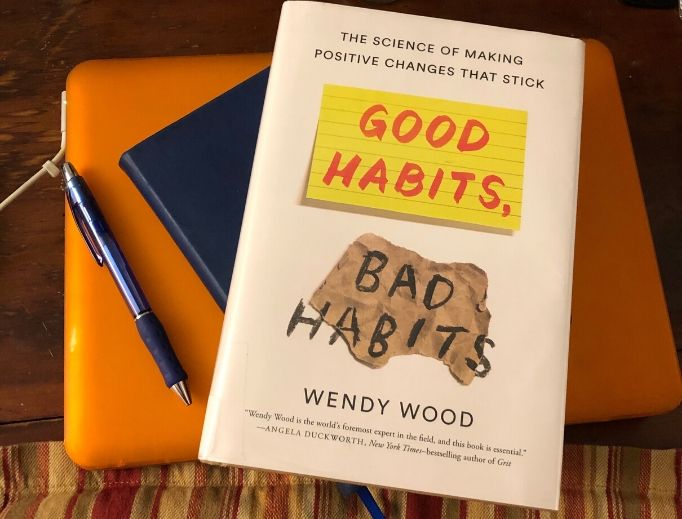A book that makes you take a closer look at...everything
“Why is it easy to make that initial decision to change, and even to start to do some of the right things—but difficult to persist in the longer term?” Wendy Wood poses this question and, really, she got my attention.
Wood’s book, Good Habits, Bad Habits: The Science of Making Positive Changes that Stick (Farrar, Straus, and Giroux, 2019), is more than just popular self-help with a side of convenient science. Wood is a behavioral scientist and has been researching and seeking the answer to this question for decades.
Her answer takes 236 pages of writing, nearly 30 pages of notes, and another 30 pages of bibliography.
But really, it was just fun to read.
And it should make sense to those of us who struggle with the Catholic life. A large part of what we’re struggling with falls under the habit category.
Prayer time? Habit. Check. Mass each week? Habit. Check. Regular confession? Habit. Check.
Unlike many of the books offering you ten tips to crack the code to be a better person, Wood doesn’t make any promises. She unpacks the science, explains how things work in the brain, and talks down-to-earth, like a friend over a cup of coffee.
She debunks the “how things are done” side of things in Part 1, and then she goes into describing how habits are formed and solidified. There’s a reason I can’t go up and down stairs without praying a Hail Mary, hardly even noticing it. It’s because I made it a habit years ago, and that context is just there. Boom. I do it.
I don’t know if it’s comforting or unnerving that habits are more resilient than other types of memory. I can’t help but think that God made us this way for a reason, and that reason is so that we can better align ourselves to him, right? Of course, free will chimes in, so there’s bound to be some hiccups.
“To illuminate the force behind our habits,” Wood writes, “it has been necessary to show how drastically most of us overestimate the strength (and necessity) of conscious thought. It’s not that it’s ineffective; it’s just not as tenacious as we think.”
There’s hope for us: “A huge part of our lives flows through our habit selves,” says Wood. “This part of us moves more slowly than our conscious understanding. It takes a while to get going—but then it’s pretty resilient. This part of ourselves is like a powerful, reliable laborer: always going, always on call. But it’s occupied with what’s right in front of it. That means there’s still a place for ‘you’—for the you who’s reading this book, the you who wants to lose some weight, or save some money, or get more out of your working day.” Or, I would add, be better at praying, have a better spiritual life, or make a positive change towards God.
In fact, there’s wisdom Mother Church has had for us all along. Lent: That time when we tackle habits and realign ourselves. And, to some extent, Advent. The liturgical year is a big habit-making and habit-breaking cycle.
If you like science-y reads and enjoy research-heavy books, you’ll like this one. You may also get some tips—or reminders—about how to make actual changes that take effect in your life.






